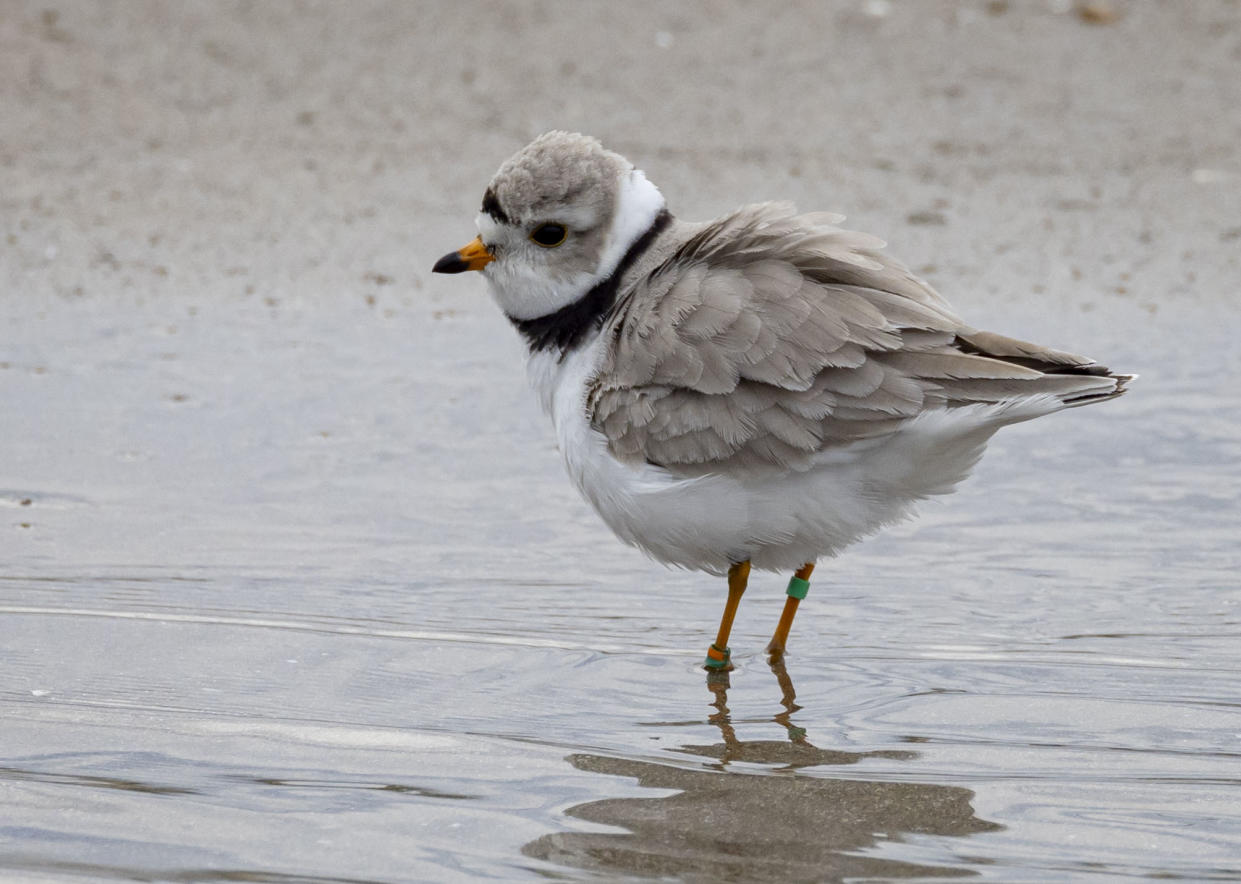A second piping plover has joined Imani at Montrose Beach. But he’s no wingman.

The only known surviving chick of Chicago’s famous piping plover pair, Monty and Rose, has a new rival.
A second piping plover — unofficially known as Green Dot — has joined the city’s favorite avian bachelor, Imani, at the North Side’s Montrose Beach.
The newcomer, believed to be male, has been seen walking next to Imani, along a parallel path. And while that may look like wingman behavior to humans, among piping plovers, the message is different.
“That’s male territorial behavior,” said Tamima Itani, lead volunteer coordinator for the Chicago Piping Plovers, which monitors the birds to ensure their safety. “They’re basically delineating their territory.”
The Great Lakes population of piping plovers, which once included about 650 nesting pairs, is endangered, with just 80 nesting pairs recorded in 2023, according to the Great Lakes Piping Plover Conservation Team.
When Imani’s parents, Monty and Rose, set up housekeeping at Montrose Beach in 2019, the city fell in love with the imperiled lovebirds and their fluffy hatchlings.
After Monty’s death in 2022 and Rose’s disappearance the same year, attention shifted to Imani, a jaunty fellow with a white belly, black neck band, and orange and black beak.
But while Imani, who was born in 2021, has returned to Montrose for the past two summers, apparently looking for love, he has yet to start a family of his own.
Green Dot, who appeared Saturday at Montrose Beach, hatched at Cat Island in Wisconsin in 2023.
The newcomer doesn’t have a name, and Green Dot refers to a green sticker on one of his leg bands. Imani has a star on one of his leg bands, a reference to the Chicago flag.
For Imani, the arrival of a rival is only the latest twist in a long and very public struggle to find a mate.
Piping plovers in Chicago: How the ‘love story’ between Monty and Rose unfolded at Montrose Beach
In 2022, the diminutive shorebird returned from his southern wintering grounds to dig shallow nests in the sand and chase off larger birds. But, alas, no female arrived to see the show.
Imani was back last summer, and there was a brief buzz when a female — and another male — showed up, but then they abruptly departed. Itani said the female was from the Great Plains, and thus unlikely to stay and mate.
“It’s not common for Great Plains piping plovers to mate with Great Lakes piping plovers,” she said. “It happens, but they tend to stop and then continue to the Great Plains.”
Foiled but apparently undaunted, Imani made his dramatic return to Montrose this year on April 25.
His best prospects for a mate are females that hatched last year and have not yet established a nesting territory, according to Itani.
“It’s really wait and see,” she said.

 Yahoo News
Yahoo News 
